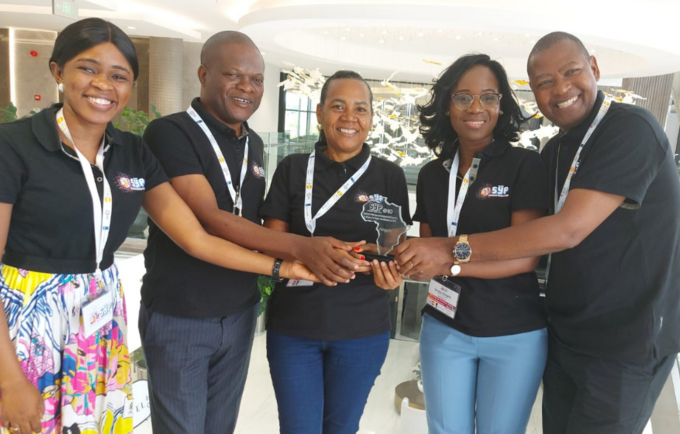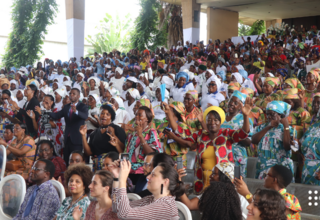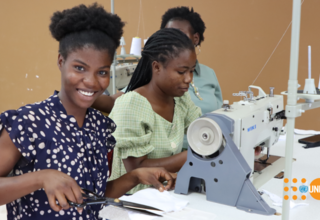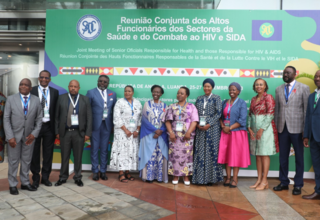The Safeguard Young People Programme (SYP), which aims to empower adolescents and young people aged between 10 and 24 to protect themselves from Sexually Transmitted Infections (STIs), including HIV, early and unwanted pregnancies, unsafe abortions, early marriages, gender-based violence and harmful cultural practices, while promoting gender equality standards and protective behaviours, held its 10th Steering Committee meeting from 6 to 7 March 2024 in Gaborone, Botswana.
The Angolan delegation attending the event was composed by six members, namely Kikas Manuel Machado - National Director for Youth - Ministry of Youth and Sports; Soraya Kalongela - National Director for Pre-School and Primary Education of the Ministry of Education; Paulo Jackson Miguel - Coordinator of the School Health Programme of the Ministry of Health; Ana Isabel Angelina - Executive Director of the Youth Support Centre, Laurinda Chilombo Santos - General Youth Director of the Council of Christian Churches in Angola and Luís Samacumbi - Youth, Gender and Humanitarian Programme Officer of the United Nations Population Fund. The delegation was received at the Angolan Embassy in the Republic of Botswana by the Administrative Attache Sandra Cambire.
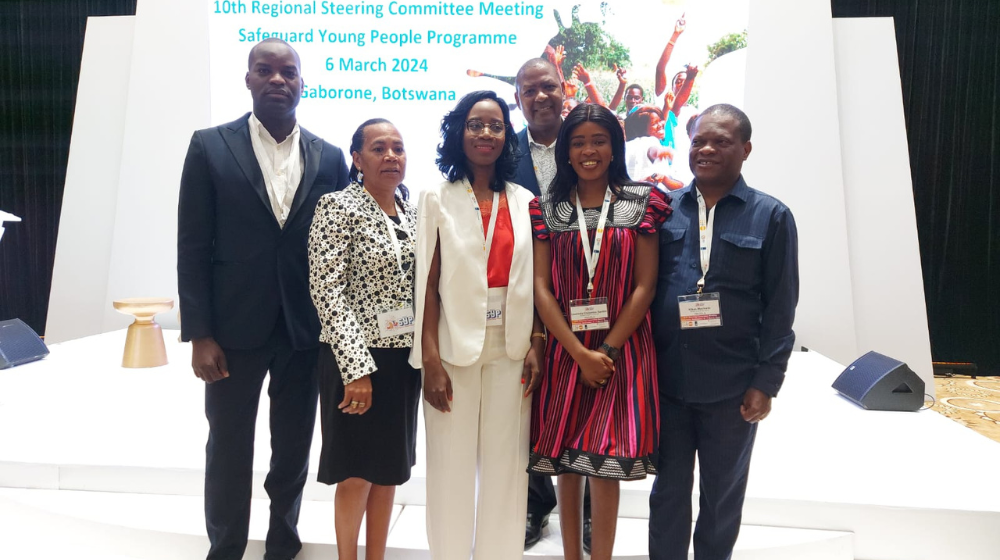
The SYP is being implemented in 12 Southern African countries (Angola, Botswana, Eswatini, Lesotho, Malawi, Mozambique, Namibia, South Africa, Tanzania, Zambia, Zimbabwe and Rwanda) and has established a good track record over the last 10 years in supporting laws and policy reforms in favor of Adolescent Sexual Reproductive Health and Rights, promoting the development of evidence-based policies, improving the integrated delivery of youth-friendly HIV services and other sexual and reproductive health (SRH) services, increasing access to and improving the quality of comprehensive sexuality education (CSE) in and out of schools, and improving youth participation and empowerment. SYP is the only program that fully operationalizes the East and Southern Africa (ESA) Ministerial Commitment on health and education for the well-being of adolescents and young people. In Angola, the SYP is being implemented in the Provinces of Luanda, Cunene, Namibe, Huila and Cuando Cubango and aims to reach 60,000 adolescents and young people aged 10 to 24 with key information in 2026.
On the sidelines of this meeting, the ten years of SYP were celebrated, where Angola was awarded with the prize for the best implementer in the menstrual health category. Angola, like Tanzania, only joined the SYP program in 2021 and since the start of SYP implementation in Angola, menstrual health has been a key strategic focus area. Since then, Angola has trained teachers from more than 150 primary and secondary schools in grades 6 and 7 in menstrual health and more than 30,000 teenage girls and boys have been reached with information about menstrual health and 15,000 menstrual underwear and 10,000 smart watches have been distributed.
Angola was also recognised as runner-up in two other categories:
Comprehensive Sexuality Education: Angola only joined SYP in 2021, but since then the Ministry of Youth and Sports has shown an exceptional appetite for innovation through digital solutions. It created the Oi Kambas Digital App, based on TuneMe, and adapted it to the Angolan context. The app was launched on one of Angola's most watched television stations, TV Zimbo, which has continued to promote regular talks on Sexual Reproductive Health ever since. Additionally, since 2023, Angola has also been using the SMS Jovem platform. This platform allows adolescents and young people to interact with counsellors who provide them with correct information and help them make informed healthy choices about their Sexual Reproductive Health. Currently, more than 100,000 users, mostly teenagers and young people, use this platform.
Mental health: Angola has partnered with the Trauma Resource Institute and Emory University in the USA to implement a community trauma resilience model. 50 Peer Educators and SYP Provincial Supervisors and Assistants have been trained so far. The model helps adolescents and young people understand the roots of traumatic stress and teaches them specific skills for coping with adverse events and how to return to balance of body, mind and spirit after experiencing traumatic events.
